Suborder Zygoptera
| Family Lestidae |
Family Platystictidae |
| Crenulated Spreadwing (Lestes praemorsus) |
Great Spreadwing (Orolestes wallacei) |
Slender Spreadwing (Platylestes heterostylus) |
Singapore Shadowdamsel (Drepanosticta quadrata) |
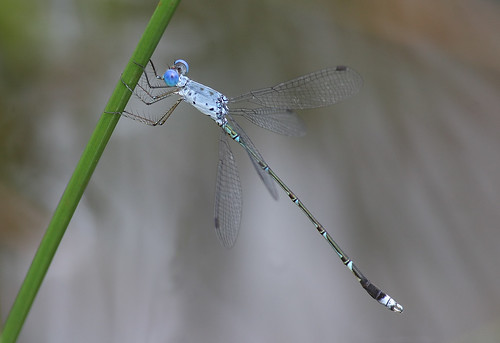 |
- |
- |
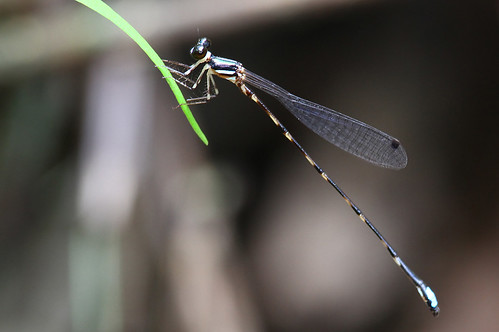 |
Family Argiolestidae |
| Blue-spotted Flatwing (Podolestes orientalis) |
White-faced Clearwing (Echo modesta) |
Green Metalwing (Neurobasis chinensis) |
Common Flashwing (Vestalis amethystina) |
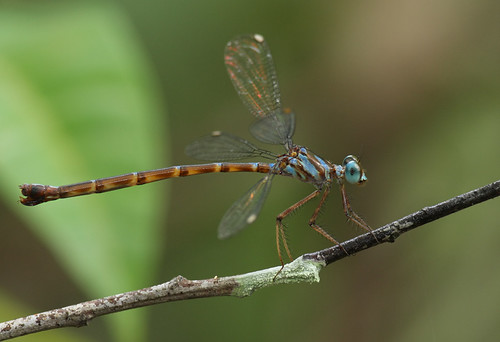 |
- |
- |
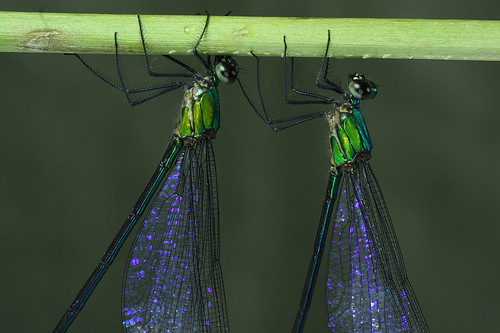 |
| Charming Flashwing (Vestalis amoena) |
Plain Flashwing (Vestalis gracilis) |
| - |
- |
Family Chlorocyphidae |
| Fiery Gem (Libellago aurantiaca) |
Clearwing Gem (Libellago hyalina) |
Golden Gem (Libellago lineata) |
Orange-faced Gem (Libellago stigmatizans) |
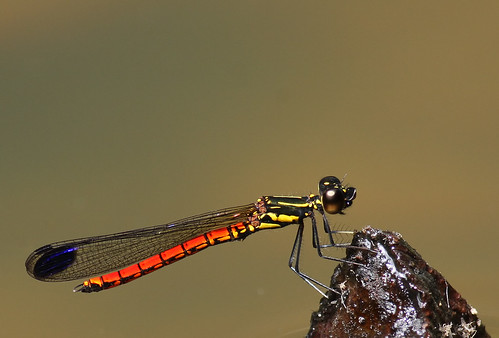 |
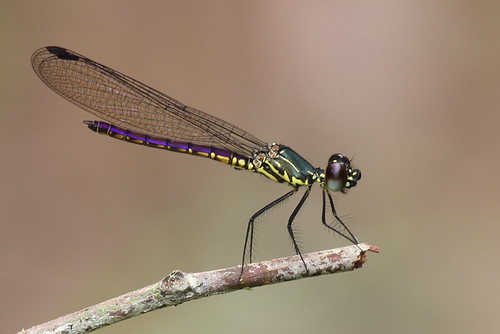 |
- |
- |
Family Devadattidae |
Family Euphaeidae |
| Malayan Grisette (Devadatta argyoides) |
Black Velvetwing (Dysphaea dimidiata) |
Blue-sided Satinwing (Euphaea impar) |
 |
- |
- |
Family Platycnemididae |
| White-tailed Sylvan (Coeliccia albicauda) |
Twin-spotted Sylvan (Coeliccia didyma) |
Telephone Sylvan (Coeliccia octogesima) |
Yellow Featherlegs (Copera marginipes) |
| - |
- |
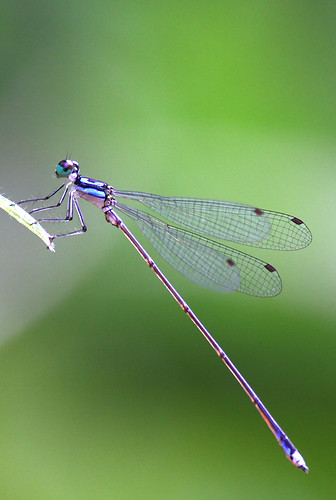 |
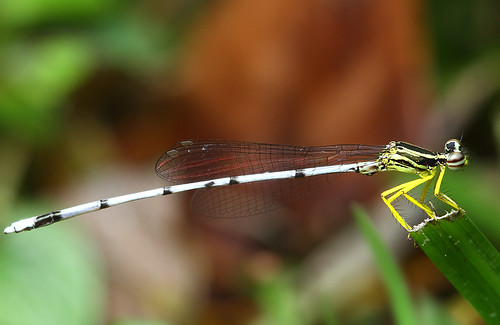 |
|
| Variable Featherlegs (Copera vittata) |
Shorttail (Onychargia atrocyana) |
Collared Threadtail (Prodasineura collaris) |
Orange-striped Threadtail (Prodasineura humeralis) |
| - |
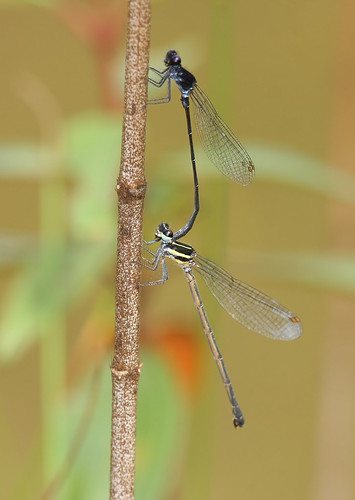 |
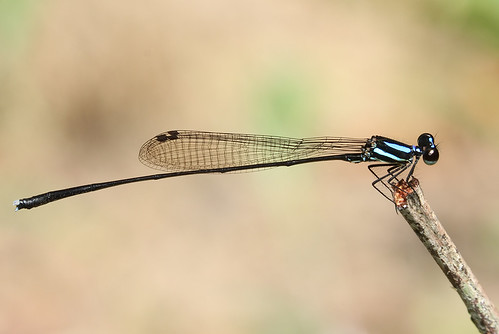 |
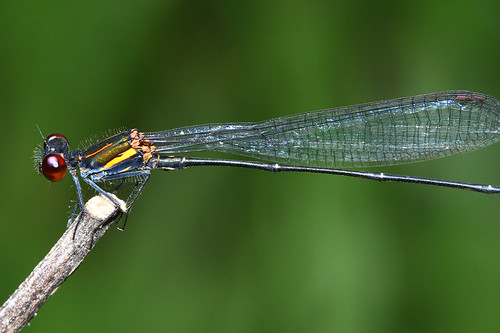 |
|
| Interrupted Threadtail (Prodasineura interrupta) |
Crescent Threadtail (Prodasineura notostigma) |
| - |
- |
Family Coenagrionidae |
| Blue Slim (Aciagrion hisopa) |
Variable Wisp (Agriocnemis femina) |
Marsh wisp (Agriocnemis minima) |
Dwarf wisp (Agriocnemis nana) |
| - |
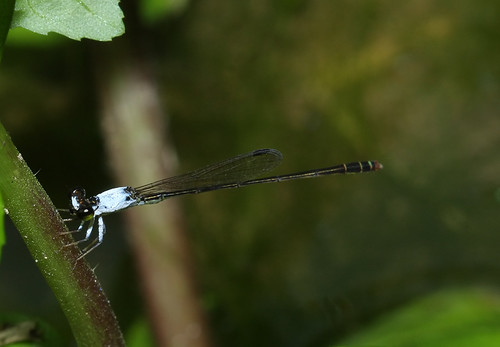 |
- |
- |
| Wandering Wisp (Agriocnemis pygmaea) |
Bebar wisp (Amphicnemis bebar) |
Will-o-wisp (Amphicnemis gracilis) |
Blue-nosed Sprite (Archibasis melanocyana) |
| - |
- |
- |
- |
| Rebecca's Sprite (Archibasis rebeccae) |
Violet Sprite (Archibasis viola) |
Variable Sprite (Argiocnemis rubescens) |
Ornate Coraltail (Ceriagrion cerinorubellum) |
| - |
- |
- |
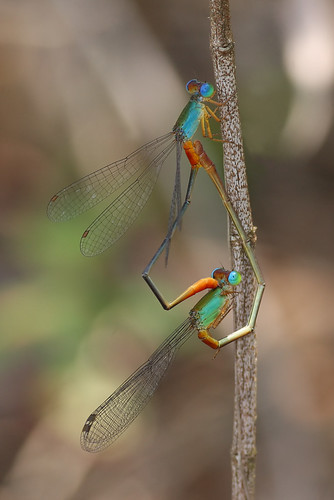 |
| Fiery Coraltail (Ceriagrion chaoi) |
Common Bluetail (Ischnura senegalensis) |
Arthur's Midget (Mortonagrion arthuri) |
Hooked Midget (Mortonagrion falcatum) |
| - |
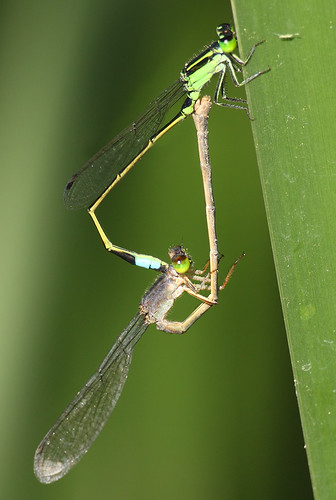 |
- |
- |
| Dryad (Pericnemis stictica) |
Look-alike Sprite (Pseudagrion australasiae) |
Blue Sprite (Pseudagrion microcephalum) |
Grey Sprite (Pseudagrion pruinosum) |
| - |
- |
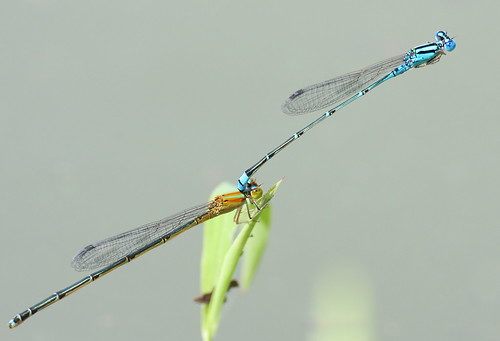 |
- |
|
| Orange-faced Sprite (Pseudagrion rubriceps) |
Cryptic Shadesprite (Teinobasis cryptica) |
Red-tailed Sprite (Teinobasis ruficollis) |
| - |
- |
- |
Crenulated Spreadwing (Lestes praemorsus)
Also called Scalloped Spreadwing. Sexes similar, but male has more brilliant pale blue thorax. It has blue eyes and black spots on thorax.

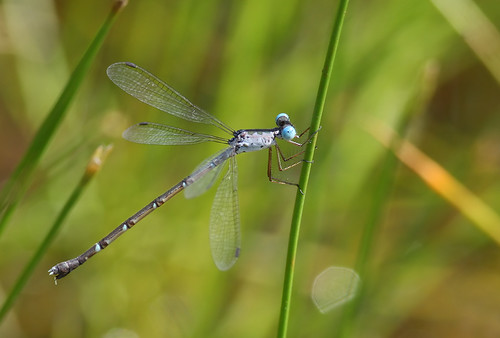
Male (left) and female (right) at Chestnut Ave ©Eddy Lee
Singapore Shadowdamsel (Drepanosticta quadrata)
So called because it was first described in Singapore. Male has broad blue patch at end of abdomen, while it is much reduced in female.

Male at Peirce Area ©Eddy Lee
Blue-spotted Flatwing (Podolestes orientalis)
Sexes similar. Also called Oriental Flatwing. It has blue diagonal stripes on the thorax.

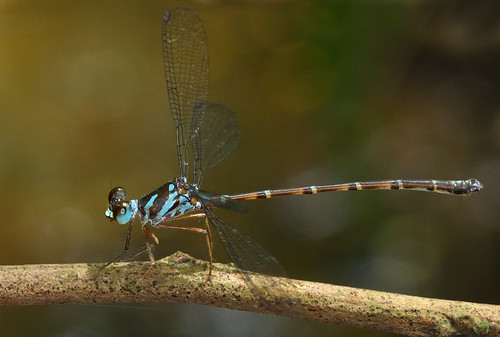
Left: Upper Peirce. Right: Chestnut Trail ©Eddy Lee
Common Flashwing (Vestalis amethystina)
Sexes similar. This species also looks like Charming Flashwing, but can be told apart by the clasper shape and genitalia colour.
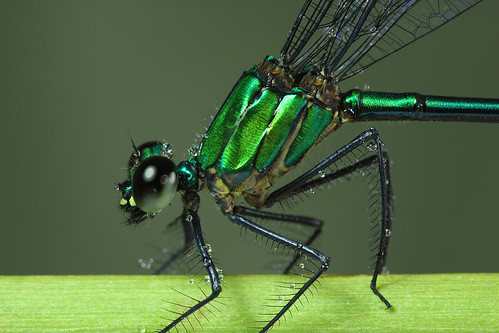
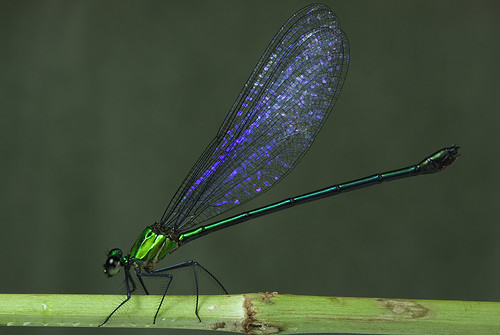
Female at Upper Peirce ©Eddy Lee
Fiery Gem (Libellago aurantiaca)
So called because of the bridge red abdomen of the male. Female has dark abdomen.

Male at Upper Peirce ©Eddy Lee
Clearwing Gem (Libellago hyalina)
This species is quite variable and colours varies with age and sex. However, female has thicker abdomen.
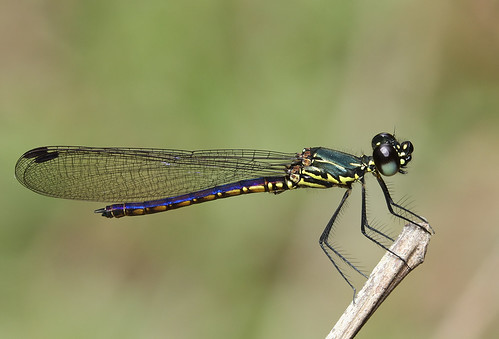
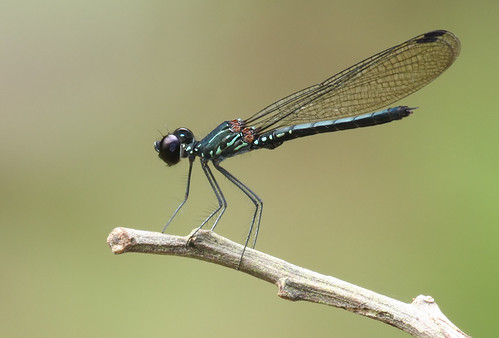
Male at Upper Peirce ©Eddy Lee
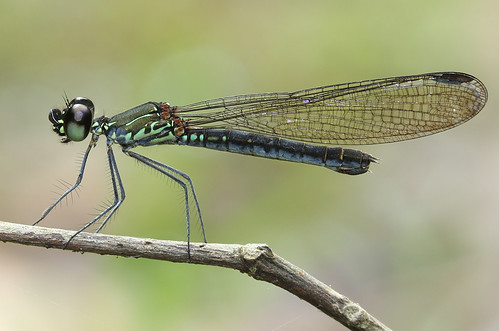
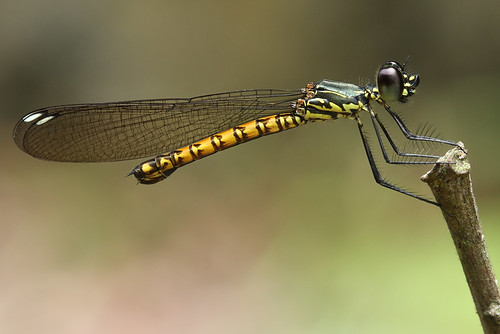
Female at Upper Peirce ©Eddy Lee
Malayan Grisette (Devadatta argyoides)
Male is brownish-bluish, while female is brownish.

Female at Dairy Farm ©Eddy Lee
Telephone Sylvan (Coeliccia octogesima)
Sexes similar. So called for the blue telephone pattern on the thorax.
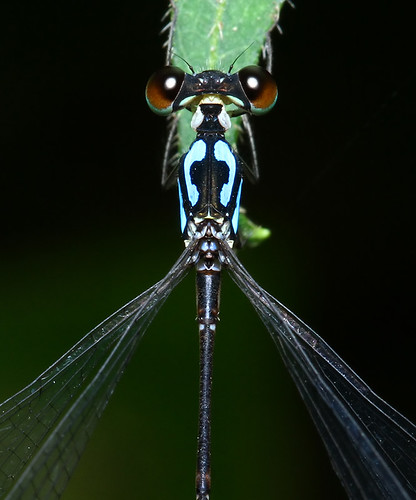
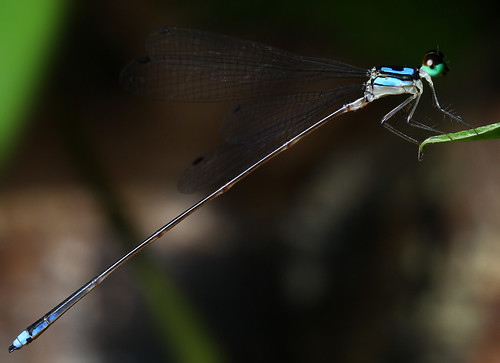
Left: Telephone pattern. Right: Male. Both at Upper Peirce ©Eddy Lee
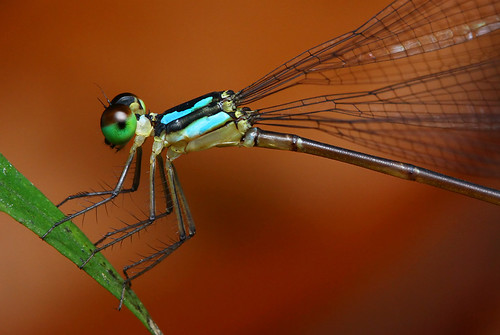
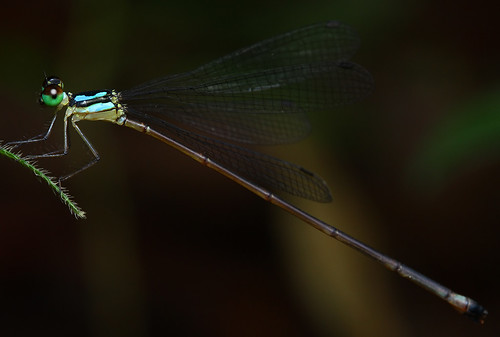
Female at Upper Peirce ©Eddy Lee
Yellow Featherlegs (Copera marginipes)
So called because of the yellow legs. Male appears more brilliant in colour than the female.
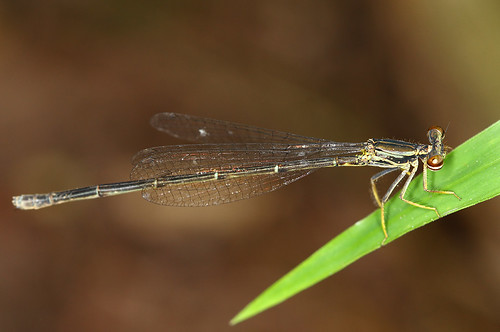
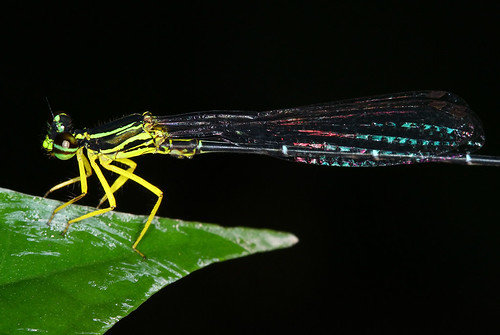
Female (left) and male (right) at Chestnut Area ©Eddy Lee
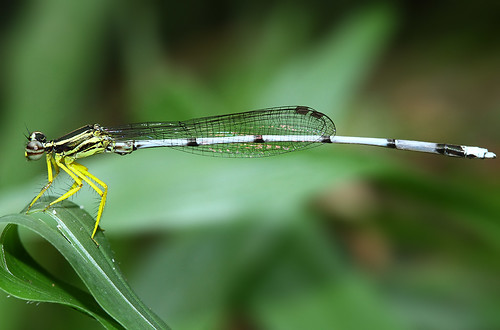
Immature at Chestnut Trail ©Eddy Lee
Shorttail (Onychargia atrocyana)
Also called Marsh Dancer. Male has dark blue thorax, female has black-and-yellow thorax. Immature male looks like female.
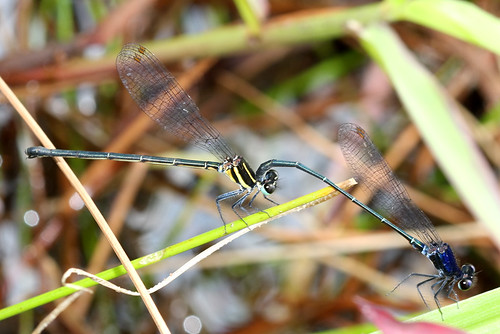
Pair ©Eddy Lee
Collared Threadtail (Prodasineura collaris)
Could be confused with the Interrupted and Crescent Threadtails. However, it has much more blue than the rest.
Having blue on the head and end of abdomen, in addition to the blue stripes on the thorax. Female has less blue on the thorax.

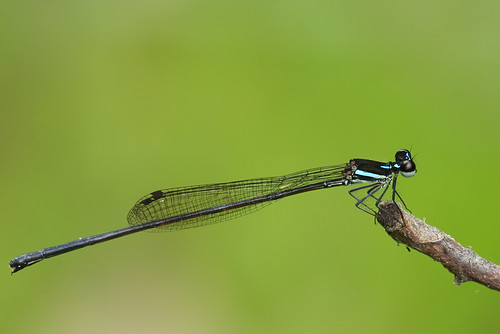
Male (left) and female (right) at Upper Peirce ©Eddy Lee
Orange-striped Threadtail (Prodasineura humeralis)
Also known as
Prodasineura verticalis. So called for the orange humeral stripe for the male, which is pale in female.

Chestnut Trail Eddy Lee
Variable Wisp (Agriocnemis femina)
So called because it changes colour as it ages and different sexes also look different.
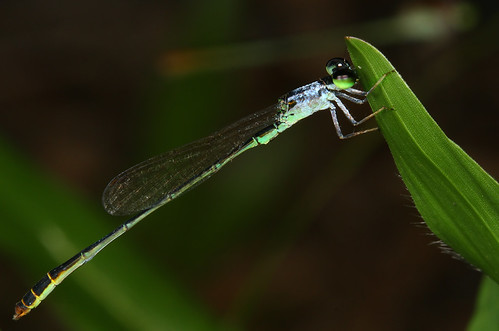
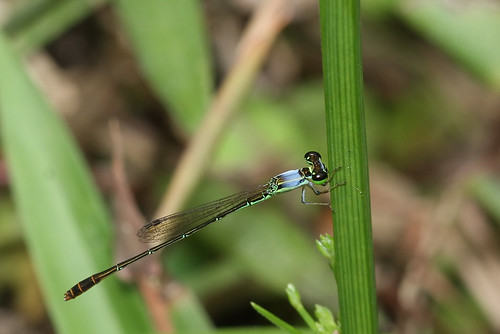
Male at Chestnut Trail ©Eddy Lee
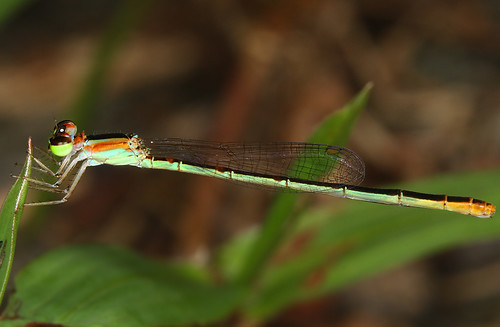
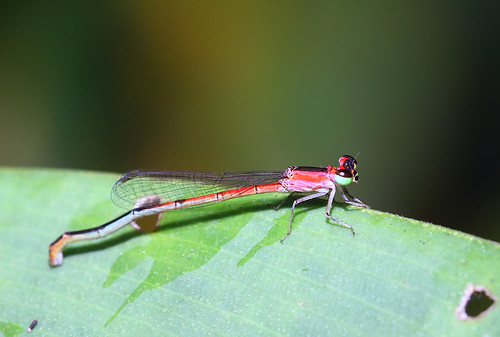
Female at Chestnut Trail ©Eddy Lee
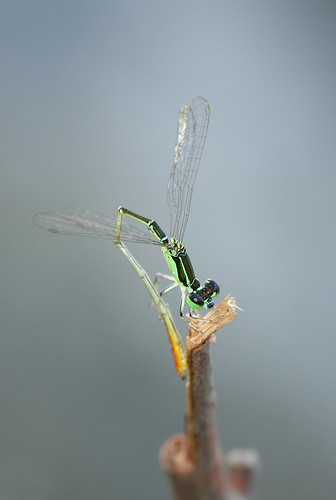

Immature male at Bishan Park ©Eddy Lee. Male at Mandai Orchid Garden ©Lau SY
Ornate Coraltail (Ceriagrion cerinorubellum)
Also called Bicoloured Damselfly or Orange-tailed Marsh Dart. Sexes similar, but male appears more bluish and female greenish.
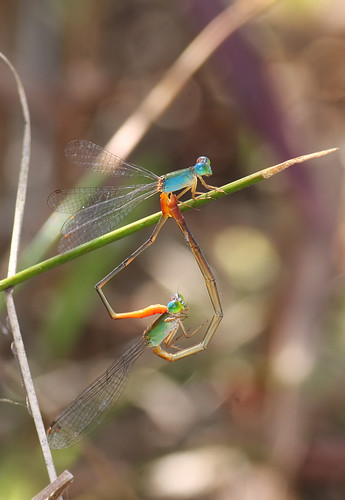
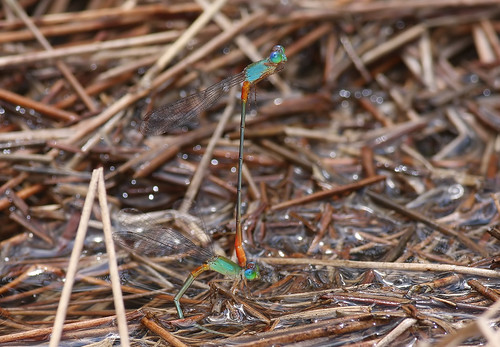
Pair ©Eddy Lee
Common Bluetail (Ischnura senegalensis)
The females are variable, some even look like the male.
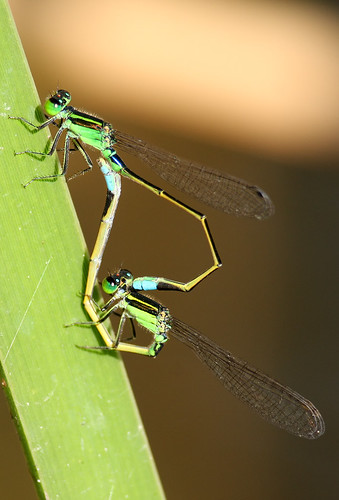
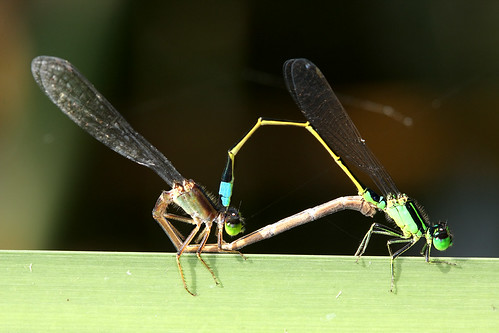
Pair at Chinese Garden ©Eddy Lee
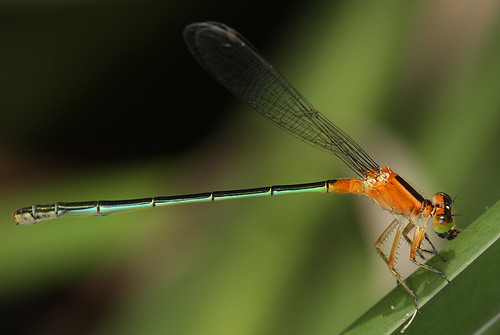
Female at Chinese Garden ©Eddy Lee
Blue Sprite (Pseudagrion microcephalum)
So called for the brilliant blue of the male. Female is green and orange.
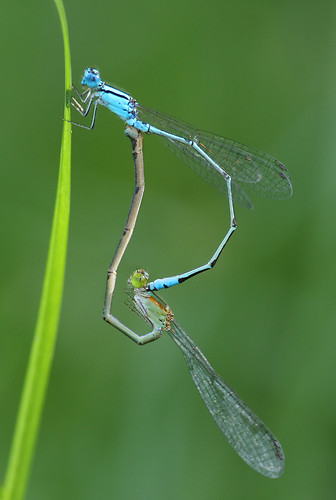
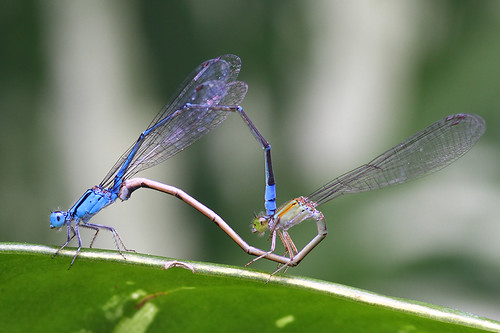
Left: Bishan Park. Right: Upper Peirce ©Eddy Lee
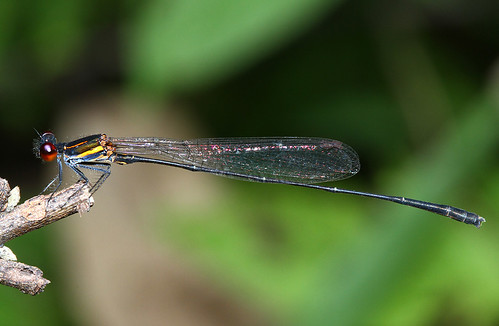
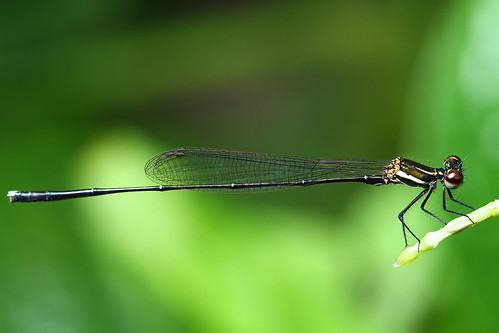
Male (left) and female (right) at Chestnut Trail ©Eddy Lee
No comments:
Post a Comment